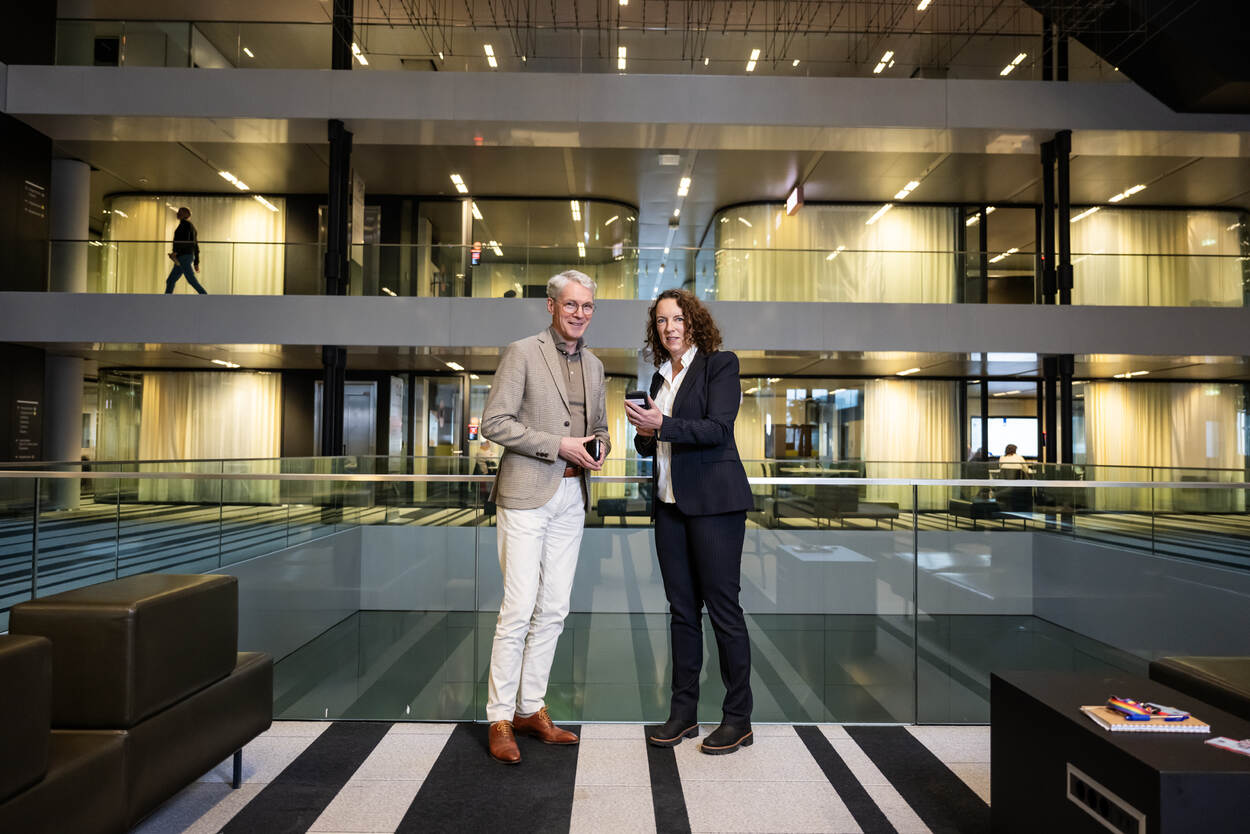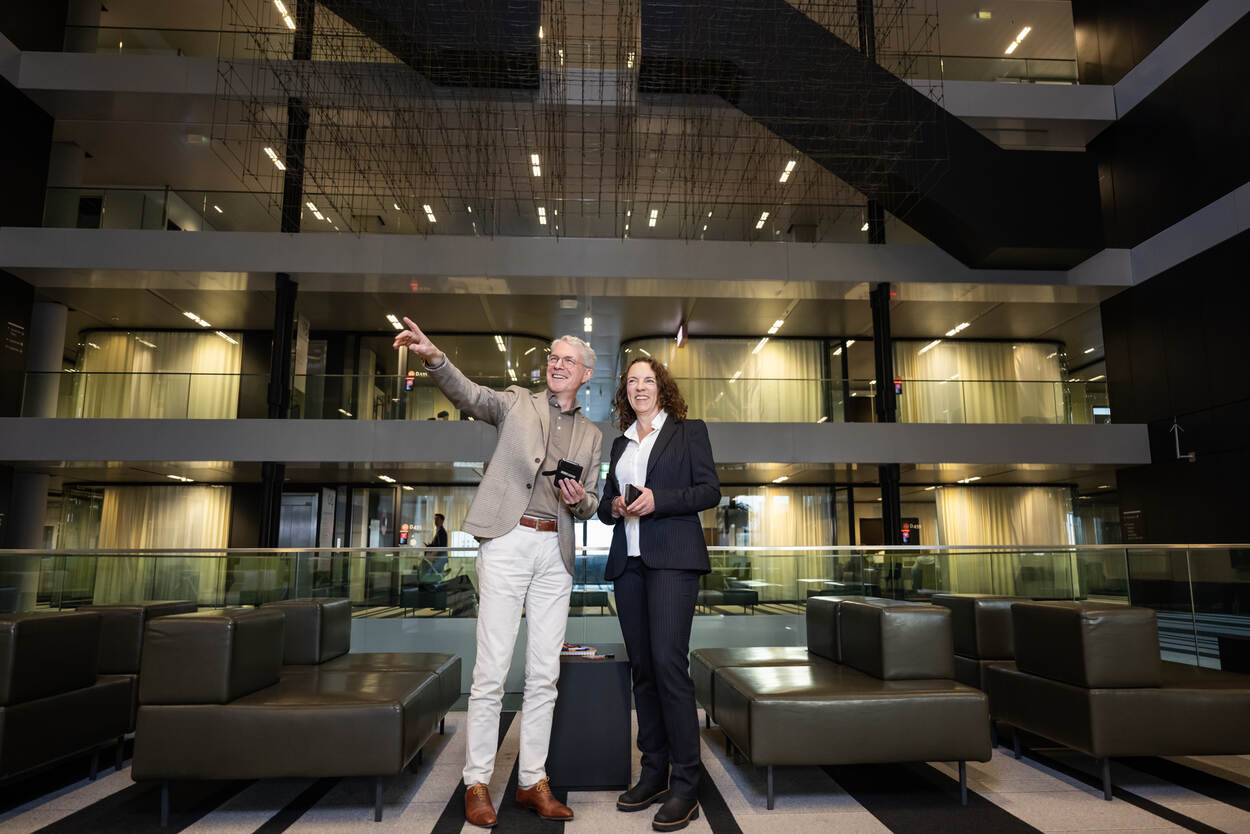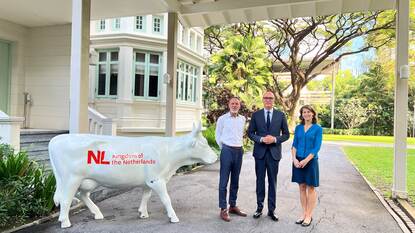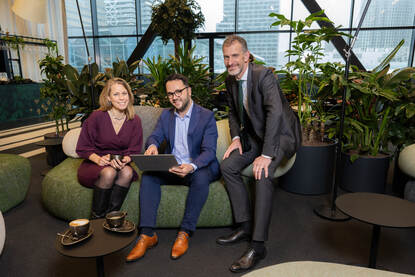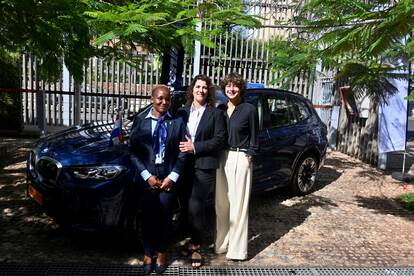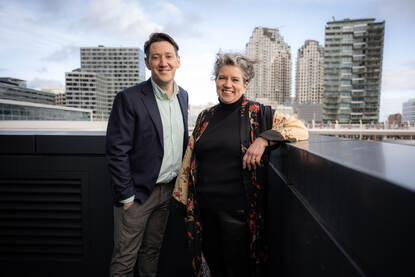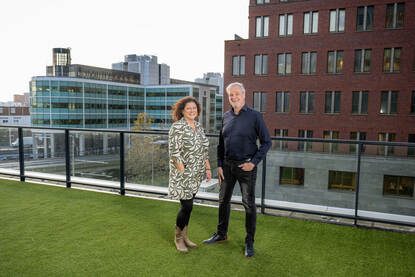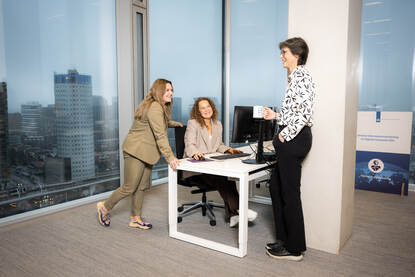Text Anouk Bakker
Photo Josje Deekens
When an international crisis occurs, BZ staff around the globe work day and night to help Dutch nationals abroad and ensure they can leave a country safely if necessary. Over the past year too, they have continued to work hard in complex circumstances. Along with their colleagues in the Human Resources Department's Health and Vitality Group, staff welfare officers Arnold Giesen and Dorinde Deerenberg help staff members deal with impactful events.
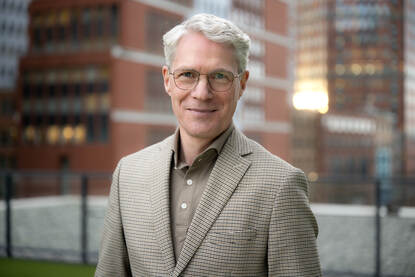
'We're here to help. To show how accessible we are, in crisis situations we and the in-house medical officers attend the first meeting of the day in The Hague.'
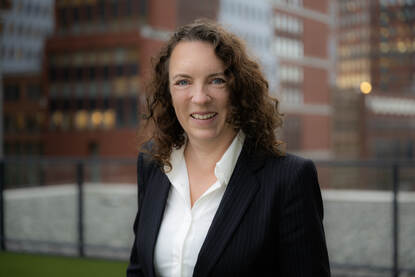
'We offer information and advice to help raise awareness of mental resilience issues.'
As Dutch rock group The Scene sang in 1990: ‘Everyone belongs to the world and the world belongs to everyone.’ But how can we contribute to stability and promote security? This question is particularly relevant today, as we do our best to deal with major tensions around the world. The conflict in the Middle East, the escalation of tensions in Lebanon and developments in Ukraine are sources of unease and emotion, and staff in the various regions and in The Hague are also feeling their effects. In a statement on Rijksportaal, Secretary-General Christiaan Rebergen expressed his appreciation for the valuable and ongoing commitment of BZ staff during crises, both on the ground and behind the scenes. He also called for staff around the world to look out for each other and remain in dialogue.
No longer taboo
Mental resilience is important during times of crisis. Staff welfare officers Arnold Giesen and Dorinde Deerenberg, from the Human Resources Department's Health and Vitality Group, provide psycho-social support and advice to BZ staff who need it. They work closely with other staff welfare officers, in-house medical officers and human resources advisers. Dorinde says that, in recent years, the focus has been on prevention. ‘We offer information and advice to help raise awareness of mental resilience issues. We explain what stress is, what it does to people and how to deal with it. People can also make an appointment with us for a low-key chat, either online or at the office. There’s a growing understanding that it’s okay to ask for help: mental health is no longer a taboo subject.’
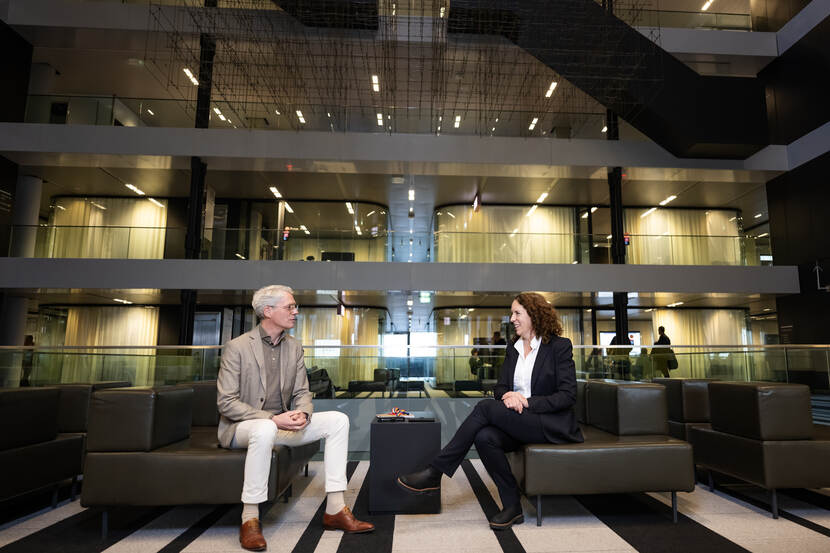
Mental resilience training
In the context of prevention, the Health and Vitality Group offers training in mental resilience for staff in The Hague and at the missions, including consular information officers from Netherlands Worldwide (NWW), consular staff and members of the Rapid Deployment Consular Support Team (SCOT). Dorinde: ‘In a crisis situation, NWW consular information officers may speak on the phone with people who need to be repatriated to the Netherlands. SCOT members are also confronted with the difficult circumstances of the people they're helping to repatriate. And situations that arise in mission districts can also have a big impact on consular staff. They may be called on to identify a deceased person or visit someone in prison, for example, or face verbal aggression at the front desk. Those are challenging working conditions, but support is available to help people process their experiences.’
A listening ear
When a crisis occurs somewhere in the world, the BZ crisis organisation is set into motion. Staff from the Health and Vitality Group are also involved, and they remain in close contact with the crisis response coordinator. Crises can have a big impact on the staff members who help tackle them. After the downing of flight MH-17, it was clear that more attention needed to be paid to the mental health of staff. Arnold sees this as a good development. ‘Staff need a listening ear, so they don't have to process everything on their own. Things they see and experience can give rise to all kinds of emotions. It’s good to acknowledge this and realise just how tough and intense that can be for everyone involved. We're here to help. To show how accessible we are, in crisis situations we and the in-house medical officers attend the first meeting of the day in The Hague. Everyone sees us there, and we introduce ourselves and explain what we can do for people. We can’t solve everything, but we do listen and offer advice. If people agree it's necessary, we and an in-house medical officer will visit a particular mission. Staff really appreciate the fact that we're there in person.’
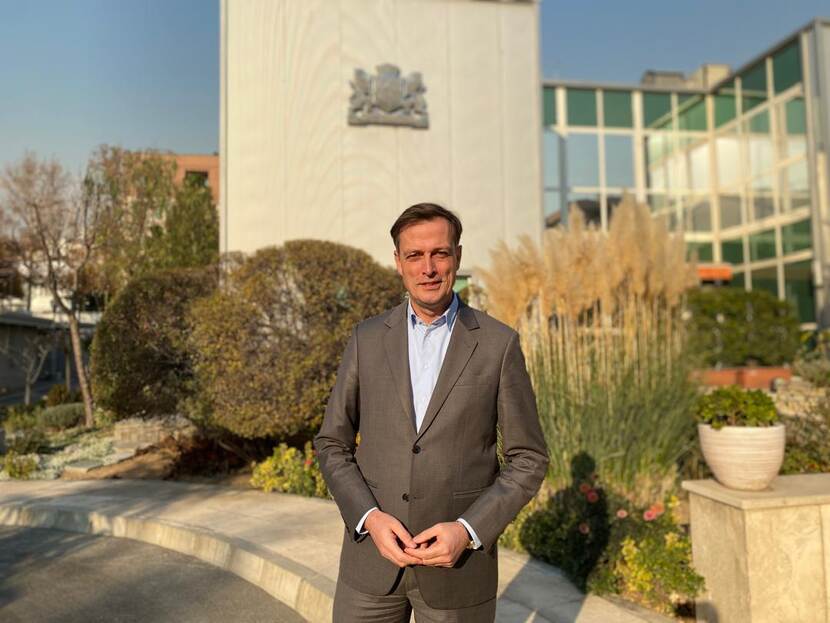
'Staff were very appreciative of the sessions, and of their employer's concern for the situations of individual staff members.'
Useful sessions
Last summer, following the death of a young woman after her arrest by the religious police, Arnold visited the embassy in Tehran. The event had led not only to persistent unrest across Iran but also pressure on Western embassies. Deputy head of mission Thomas van Leeuwen: ‘The authorities were accusing Western embassies of encouraging the demonstrations, and they saw us as hostile. As a result, both local staff and staff posted to the embassy felt anxious and under pressure.’ Arnold’s help was more than welcome. He organised a number of plenary sessions for staff at the embassy to help bolster their mental resilience. ‘It was good that he could help the team discuss such a loaded topic,’ says Thomas. 'Arnold was very perceptive of how people were feeling and he offered ideas and practical tips. This made us more comfortable talking about things, particularly in the one-to-one discussions that we had with the staff members who wanted them. An evaluation later revealed that staff were very appreciative of the sessions, and of their employer's concern for the situations of individual staff members.'
In survival mode
When you're in the midst of a crisis, there’s no time to evaluate. Arnold: ‘You're in survival mode. Even in an abnormal situation your body and mind just carry on as usual. The response usually comes later. For example, someone might develop insomnia. It takes time to process things. In the meantime it’s important to look out for each other. To respect each other’s boundaries. And to try and understand what someone is feeling, what they've been through. Together with staff from the Vitality and Health Group, we offer guidelines for a healthy approach to processing experiences.
HDPO Health and Vitality Group
BZ wants its staff members to feel fit and healthy. Caring for their mental and emotional health and wellbeing is part of that. HDPO Vitality and Health is here to help you. Our team is made up of staff welfare officers, in-house welfare officers, a prevention expert and a vitality coach. The staff welfare officers are Arnold Giesen, Dorinde Deerenberg, Talitha Laan and Pascale Bongers.
Not routine work
Arnold and Dorinde also feel the impact of their work. ‘It’s not routine, and that makes it special,’ says Arnold. ‘One time I helped an embassy team with grief counselling. We had to use simultaneous interpreting for the session. It left a deep impression on me.’ Dorinde concurs: ‘You can be speaking to someone suffering from burnout in the morning, and later get a call that someone else is facing a life-or-death situation. Then you realise: these are the things that BZ staff members are dealing with. Their work can bring challenges and risks that you only really learn how to deal with when you're in the midst of it.'
More information about the Human Resources Department (HDPO)
- Guiding you through our learning activities | Human Resources Department (HDPO) | BZ Operational Management magazine
- Welcome to BZ! | Human Resources Department (HDPO) | BZ Operational Management magazine
(Note: the following links can be accessed by central government staff only)
